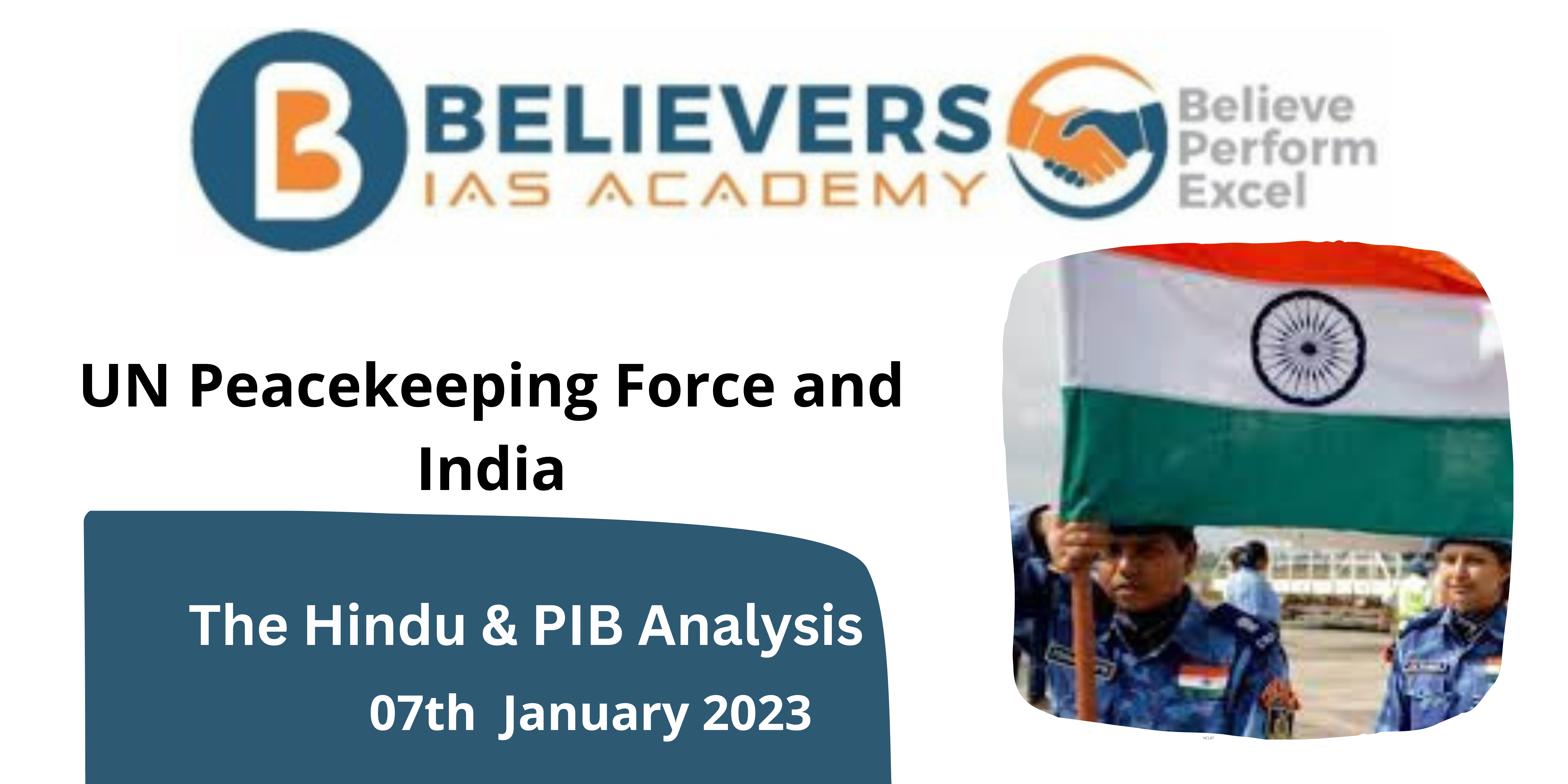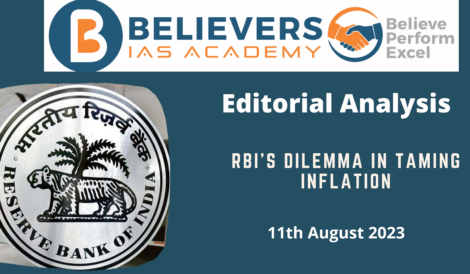- Posted on
- UPSC Static Quiz July 2023
04 July 2023
Quiz-summary
0 of 5 questions completed
Questions:
- 1
- 2
- 3
- 4
- 5
Information
04th July 2023 Static Quiz for UPSC Prelims
You have already completed the quiz before. Hence you can not start it again.
Quiz is loading...
You must sign in or sign up to start the quiz.
You have to finish following quiz, to start this quiz:
Results
0 of 5 questions answered correctly
Your time:
Time has elapsed
You have reached 0 of 0 points, (0)
| Average score |
|
| Your score |
|
Categories
- Not categorized 0%
- 1
- 2
- 3
- 4
- 5
- Answered
- Review
-
Question 1 of 5
1. Question
2 pointsWith reference to the procedures of Indian Parliament, a starred question requires
Correct
Correct Answer: C
Explanation
• Option C is correct.
• Starred Question is one to which a member desires an oral answer from the Minister in the House and is required to be distinguished by him/her with an asterisk. Answer to such a question may be followed by supplementary questions by members.Incorrect
Correct Answer: C
Explanation
• Option C is correct.
• Starred Question is one to which a member desires an oral answer from the Minister in the House and is required to be distinguished by him/her with an asterisk. Answer to such a question may be followed by supplementary questions by members. -
Question 2 of 5
2. Question
2 pointsRegarding the ‘Dying Declaration’ in the Indian judicial system, consider the following statements:
1. It is the statement of a person who is dying, explaining the circumstances of his/her death.
2. Indian Evidence Act, 1872 does not recognize the dying declaration made verbally.
3. It has to be recorded compulsorily in the presence of a Judicial or Executive Magistrate in India.Correct
Correct Answer: B
Explanation
• Statement 1 is correct. Statements 2 and 3 are incorrect.
• Recently, a special CBI court convicted two policemen and awarded them life sentences for the custodial death of a murder accused who was burnt alive inside a police station. The judgment relied heavily on the ‘dying declaration’ made by the victim prior to his death.
• Statement 1 is correct. The Dying Declaration is the statement of a person who had died explaining the circumstances of his death. A dying declaration is considered credible and trustworthy evidence, based upon the general belief that most people who know that they are about to die, do not lie.
• Statement 2 is incorrect. Section 32 of the Indian Evidence Act deals with the cases related to that person who is dead or who cannot be found. It defines dying declaration as a statement written or verbal of relevant facts made by a person, who is dead. It is the statement of a person who had died explaining the circumstances of his death.
• Statement 3 is incorrect. Anyone can record the dying declaration of the deceased as per law. The law does not compulsorily require the presence of a Judicial or Executive Magistrate to record a dying declaration. The only requirement for such a declaration to be held perfectly accountable in court is for the victim to volunteer the statement and be of conscious mind. The person who records the dying declaration must be satisfied that the victim is in a fit state of mind.Incorrect
Correct Answer: B
Explanation
• Statement 1 is correct. Statements 2 and 3 are incorrect.
• Recently, a special CBI court convicted two policemen and awarded them life sentences for the custodial death of a murder accused who was burnt alive inside a police station. The judgment relied heavily on the ‘dying declaration’ made by the victim prior to his death.
• Statement 1 is correct. The Dying Declaration is the statement of a person who had died explaining the circumstances of his death. A dying declaration is considered credible and trustworthy evidence, based upon the general belief that most people who know that they are about to die, do not lie.
• Statement 2 is incorrect. Section 32 of the Indian Evidence Act deals with the cases related to that person who is dead or who cannot be found. It defines dying declaration as a statement written or verbal of relevant facts made by a person, who is dead. It is the statement of a person who had died explaining the circumstances of his death.
• Statement 3 is incorrect. Anyone can record the dying declaration of the deceased as per law. The law does not compulsorily require the presence of a Judicial or Executive Magistrate to record a dying declaration. The only requirement for such a declaration to be held perfectly accountable in court is for the victim to volunteer the statement and be of conscious mind. The person who records the dying declaration must be satisfied that the victim is in a fit state of mind. -
Question 3 of 5
3. Question
2 pointsThe term fraternity present in the Preamble gets reflected implicitly in which of the following provisions of the Constitution of India?
1. 6th Schedule
2. Part-IV
3. Part-III
4. Part-IV (A)
Select the correct answer using the code given below:Correct
Correct Answer: D
Explanation
• All the options are correct.
• Fraternity essentially means that all the citizens should behave like members of the same family. No one should treat a fellow citizen as inferior. The Preamble declares that fraternity has to assure two things—the dignity of the individual and the unity and integrity of the nation. The word ‘integrity’ has been added to the Preamble by the 42nd Constitutional Amendment (1976).
• Option 1 is correct. The Sixth Schedule of the Constitution provides for the administration of tribal areas in Assam, Meghalaya, Tripura and Mizoram to safeguard the rights of the tribal population in these states. It promotes fraternity by upholding the dignity of the tribal people as they can govern themselves according to their customs and values and also within the larger framework of nationalism, Sixth Schedule fulfils their needs and aspirations, thus promoting unity and integrity of the nation.
• Option 2 is correct. Part-IV of Indian Constitution deals with directive principles of state policy which are instructions to the state. It aims to establish social and economic democracy through a welfare state. It promotes fraternity by upholding dignity of an individual through provisions like Article 39(b) [the equitable distribution of material resources of the community for the common good], Article 39(c) [prevention of concentration of wealth and means of production], article 43 [living wage for workers], etc. Further, unity and integrity is upheld through provisions like article 44 [uniform civil code for the citizens], etc.
• Option 3 is correct. Part III deals with fundamental rights and does talk about the fraternity ideal implicitly. Fundamental rights are the basic human rights enshrined in the Constitution of India which are guaranteed to all citizens. They are applied without discrimination on the basis of race, religion, gender, etc. Value of Fraternity gets manifested in the Fundamental right through provisions like Article 17 [ban of untouchability to uphold dignity of an individual], Article 23 [ban on child labour], Article 25 [secularism promotes unity and integrity], etc.
• Option 4 is correct. The idea of fraternity finds mention in Art. 51A(e) of (Part-IV A) i.e., fundamental duties, where it is the duty of every citizen “to promote harmony and the spirit of common brotherhood amongst all the people of India transcending religious, linguistic and regional or sectional diversities; to renounce practice derogatory to the dignity of women”.Incorrect
Correct Answer: D
Explanation
• All the options are correct.
• Fraternity essentially means that all the citizens should behave like members of the same family. No one should treat a fellow citizen as inferior. The Preamble declares that fraternity has to assure two things—the dignity of the individual and the unity and integrity of the nation. The word ‘integrity’ has been added to the Preamble by the 42nd Constitutional Amendment (1976).
• Option 1 is correct. The Sixth Schedule of the Constitution provides for the administration of tribal areas in Assam, Meghalaya, Tripura and Mizoram to safeguard the rights of the tribal population in these states. It promotes fraternity by upholding the dignity of the tribal people as they can govern themselves according to their customs and values and also within the larger framework of nationalism, Sixth Schedule fulfils their needs and aspirations, thus promoting unity and integrity of the nation.
• Option 2 is correct. Part-IV of Indian Constitution deals with directive principles of state policy which are instructions to the state. It aims to establish social and economic democracy through a welfare state. It promotes fraternity by upholding dignity of an individual through provisions like Article 39(b) [the equitable distribution of material resources of the community for the common good], Article 39(c) [prevention of concentration of wealth and means of production], article 43 [living wage for workers], etc. Further, unity and integrity is upheld through provisions like article 44 [uniform civil code for the citizens], etc.
• Option 3 is correct. Part III deals with fundamental rights and does talk about the fraternity ideal implicitly. Fundamental rights are the basic human rights enshrined in the Constitution of India which are guaranteed to all citizens. They are applied without discrimination on the basis of race, religion, gender, etc. Value of Fraternity gets manifested in the Fundamental right through provisions like Article 17 [ban of untouchability to uphold dignity of an individual], Article 23 [ban on child labour], Article 25 [secularism promotes unity and integrity], etc.
• Option 4 is correct. The idea of fraternity finds mention in Art. 51A(e) of (Part-IV A) i.e., fundamental duties, where it is the duty of every citizen “to promote harmony and the spirit of common brotherhood amongst all the people of India transcending religious, linguistic and regional or sectional diversities; to renounce practice derogatory to the dignity of women”. -
Question 4 of 5
4. Question
2 pointsConsider the following:
1. A member of an Armed Police Force of a State, and is serving outside that state.
2. A person serving a sentence of imprisonment after a conviction.
3. Electors over 80 years of age.
4. Persons with disabilities.
5. Electors subject to preventive detention.
In context to the elections in India, who among the above are entitled to the Electronically Transmitted Postal Ballot System (ETPBS)?Correct
Correct Answer: C
Explanation
• Options 1, 3, 4 and 5 are correct. Option 2 is incorrect.
• About Postal ballots (Electronically Transmitted Postal Ballot System (ETPBS)):
• Postal ballots, in which a voter exercises his/her franchise through post is available only for service voters; and electors subject to preventive detention. (Hence Option 5 is correct)
• Under this method, ballot papers are distributed electronically to electors and returned via post.
• According to the Representation of People Act, 1950, service voter means:
1. Being a member of the armed Forces of the Union; or
2. Being a member of a force to which provisions of the Army Act, 1950 (46 of 1950), have been made applicable whether with or without modification;
3. Being a member of an Armed Police Force of a State, and serving outside that state; or (Hence Option 1 is correct)
4. Being a person who is employed under the Government of India, in a post outside India.
• In October 2019, the Law Ministry amended the Conduct of Election Rules, 1961 to allow people with disabilities and those who are 80 or older to opt for postal ballots in the absentee voter list. (Hence Options 3 and 4 are correct)
1. The absentee voter refers to a vote cast by someone who is unable to go to the polling station.
• Recently, the Ministry allowed “COVID-19 suspect or affected persons” to use the postal ballot facility.
• The remaining eligible voters are expected to cast a vote in person at designated polling stations.
• According to the Election Commission of India, prisoners do not have voting rights under the Representation of People (RP) Act. Any person who is confined in prison while serving a sentence of imprisonment on his conviction for any offence or is under lawful confinement in a prison or in a police custody for any reason is not entitled to vote in an election. But this restriction does not apply to a person subjected to any kind of preventive detention. (Hence Option 2 is incorrect)Incorrect
Correct Answer: C
Explanation
• Options 1, 3, 4 and 5 are correct. Option 2 is incorrect.
• About Postal ballots (Electronically Transmitted Postal Ballot System (ETPBS)):
• Postal ballots, in which a voter exercises his/her franchise through post is available only for service voters; and electors subject to preventive detention. (Hence Option 5 is correct)
• Under this method, ballot papers are distributed electronically to electors and returned via post.
• According to the Representation of People Act, 1950, service voter means:
1. Being a member of the armed Forces of the Union; or
2. Being a member of a force to which provisions of the Army Act, 1950 (46 of 1950), have been made applicable whether with or without modification;
3. Being a member of an Armed Police Force of a State, and serving outside that state; or (Hence Option 1 is correct)
4. Being a person who is employed under the Government of India, in a post outside India.
• In October 2019, the Law Ministry amended the Conduct of Election Rules, 1961 to allow people with disabilities and those who are 80 or older to opt for postal ballots in the absentee voter list. (Hence Options 3 and 4 are correct)
1. The absentee voter refers to a vote cast by someone who is unable to go to the polling station.
• Recently, the Ministry allowed “COVID-19 suspect or affected persons” to use the postal ballot facility.
• The remaining eligible voters are expected to cast a vote in person at designated polling stations.
• According to the Election Commission of India, prisoners do not have voting rights under the Representation of People (RP) Act. Any person who is confined in prison while serving a sentence of imprisonment on his conviction for any offence or is under lawful confinement in a prison or in a police custody for any reason is not entitled to vote in an election. But this restriction does not apply to a person subjected to any kind of preventive detention. (Hence Option 2 is incorrect) -
Question 5 of 5
5. Question
2 pointsConsider the following statements:
1. No civil and criminal proceedings can be instituted against the President during his/her term of office.
2. A prior permission of the President of India is mandatorily needed to arrest a cabinet minister.
3. No civil process can be instituted against a member or outsider within the precincts of the House without the prior permission of the presiding officer.
Which of the statements given above is/are correct?Correct
Correct Answer: C
Explanation
• Statement 3 is correct. Statements 1 and 2 are incorrect.
• Statement 1 is incorrect. The President enjoys personal immunity from legal liability for his official acts. During his term of office, he is immune from any criminal proceedings, even in respect of his personal acts. He cannot be arrested or imprisoned. However, after giving two months’ notice, civil proceedings can be instituted against him during his term of office in respect of his personal acts.
• Statement 2 is incorrect. There is no such provision of getting prior permission of the President of India to arrest a cabinet minister.
• If Parliament is not in session, a cabinet minister can be arrested by a law enforcement agency in case of a criminal case registered against him. As per Section 22 A of the Rules of Procedures and Conduct of Business of the Rajya Sabha, the Police, Judge or Magistrate would, however, have to intimate the Chairman of the Rajya Sabha about the reason for the arrest, the place of detention or imprisonment in an appropriate form.
• Statement 3 is correct. According to the collective privileges (privileges belonging to each House of Parliament collectively), no person (either a member or outsider) can be arrested, and no legal process (civil or criminal) can be served within the precincts of the House without the permission of the presiding officer.Incorrect
Correct Answer: C
Explanation
• Statement 3 is correct. Statements 1 and 2 are incorrect.
• Statement 1 is incorrect. The President enjoys personal immunity from legal liability for his official acts. During his term of office, he is immune from any criminal proceedings, even in respect of his personal acts. He cannot be arrested or imprisoned. However, after giving two months’ notice, civil proceedings can be instituted against him during his term of office in respect of his personal acts.
• Statement 2 is incorrect. There is no such provision of getting prior permission of the President of India to arrest a cabinet minister.
• If Parliament is not in session, a cabinet minister can be arrested by a law enforcement agency in case of a criminal case registered against him. As per Section 22 A of the Rules of Procedures and Conduct of Business of the Rajya Sabha, the Police, Judge or Magistrate would, however, have to intimate the Chairman of the Rajya Sabha about the reason for the arrest, the place of detention or imprisonment in an appropriate form.
• Statement 3 is correct. According to the collective privileges (privileges belonging to each House of Parliament collectively), no person (either a member or outsider) can be arrested, and no legal process (civil or criminal) can be served within the precincts of the House without the permission of the presiding officer.
Leaderboard: 04 July 2023
maximum of 10 points
Pos.
Name
Entered on
Points
Result
Table is loading
No data available




